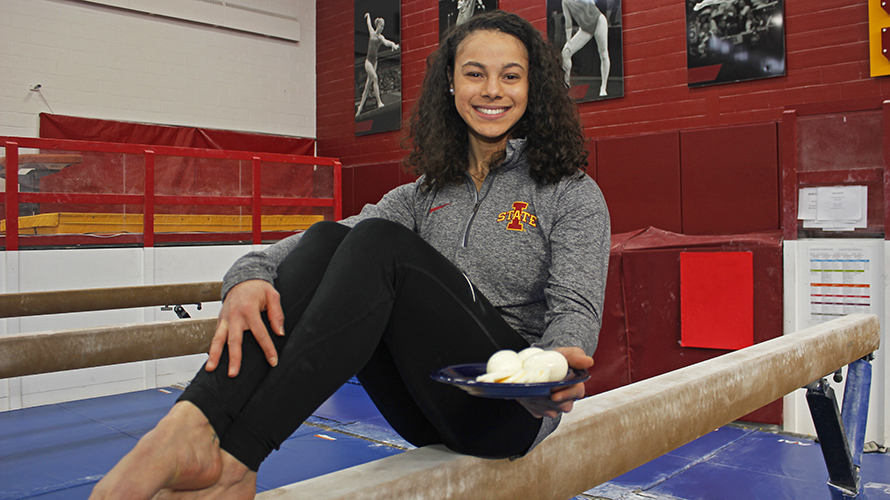Searching for connection between egg consumption and athletic performance
Student News
ISU News
02/15/2019

Former Iowa State gymnast Hilary Green knows the impact gymnastics can have on joints. In a recent pilot study, Green looked to see if egg consumption would relieve the overuse and chronic inflammation of gymnasts' joints. Photo by Whitney Sager.
